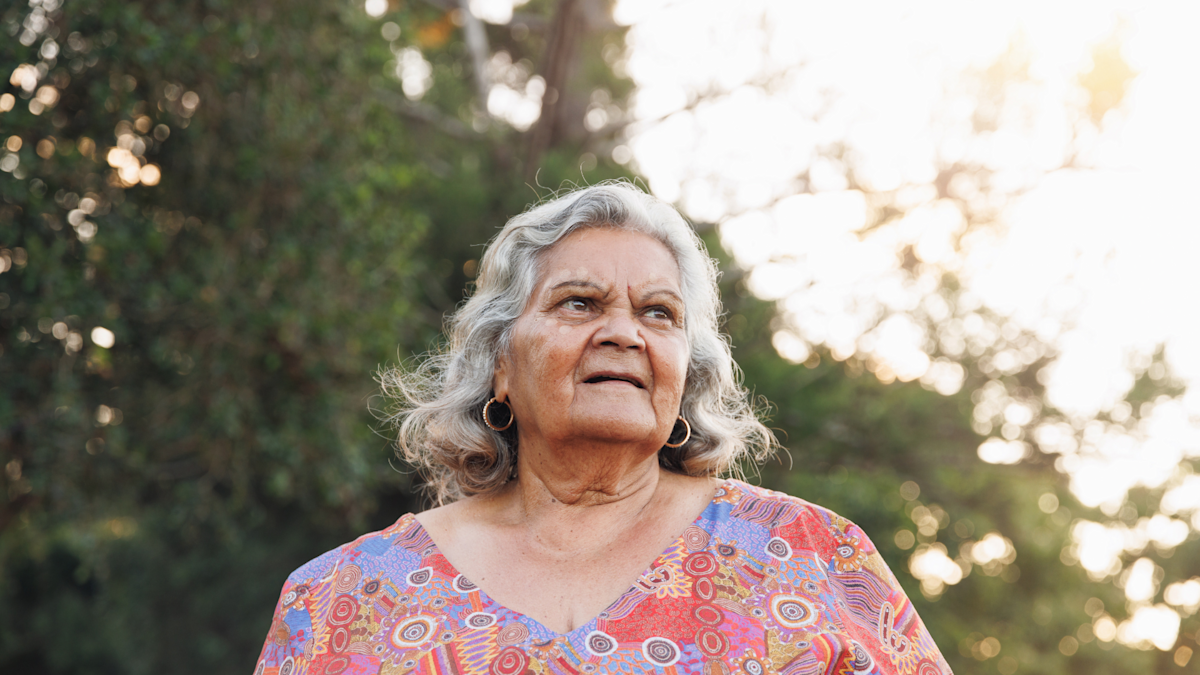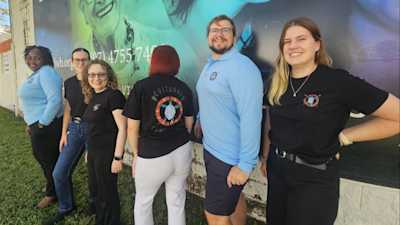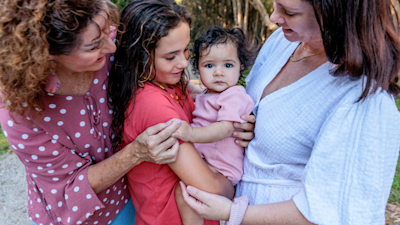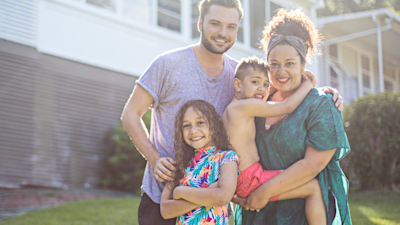National Apology Day is a time to reflect on the ongoing impacts and intergenerational trauma experienced by the Stolen Generations, their families, and Aboriginal and Torres Strait Islander communities.

Image: Close-up of an older woman with short grey hair, wearing a colourful top, standing outdoors and looking off to the side.
Aboriginal and Torres Strait Islander visitors are advised that this story discusses difficult topics. You can find a list of support resources at the end of this article.
The National Apology formally acknowledged the injustices of past Government policies and practices that forcibly removed multiple generations of Aboriginal and Torres Strait Islander children from their families, country and culture. It is a day to reflect on these past wrongs and consider how we might individually and collectively ensure the same wrongs don’t occur again.
This year, 2025, marks the 17th anniversary of the formal apology to Aboriginal and Torres Strait Islander peoples made by former Prime Minister Kevin Rudd, on behalf of the nation, in 2008.
At Life Without Barriers, we believe that in order to achieve reconciliation, it is imperative that all Australians acknowledge the true history of our nation, and the damaging effects colonisation continues to have on Aboriginal and Torres Strait Islander communities. We also recognise the enduring strength and resilience of Aboriginal and Torres Strait Islander Peoples as they continue to advocate for change and a future shaped by self-determination.
What was the purpose of the National Apology?
Since colonisation, Aboriginal and Torres Strait Islander communities have experienced discrimination, unjust treatment, racism and abuse of their human rights. This treatment continued into the 19th and 20th centuries as a direct result of Government policies.
The National Apology acknowledged the long-term impact past laws, policies, and practices had upon Aboriginal and Torres Strait Islander peoples, particularly members of the Stolen Generations and their kin.
This was a momentous turning point in Australia's history, demonstrating the importance of acknowledging past wrongs in paving the road to Reconciliation in Australia.

Image: Two adult women and three children walk across a sandy plain with their backs to the camera.
What is the difference between National Apology Day and National Sorry Day?
While both National Apology Day and National Sorry Day acknowledge the historical trauma experienced by Aboriginal and Torres Strait Islander peoples, the two days mark different anniversaries.
National Sorry Day, held on May 26, marks the anniversary of the tabling of the Bring Them Home report in Parliament. The Bringing Them Home report documented the policies and practices that resulted in the forceful separation of Aboriginal and Torres Strait Islander children from their families, to assimilate them into white Australian culture. Australia recognises these children as part of the Stolen Generation.
National Apology Day is the anniversary of when the Apology was given by former Prime Minister Kevin Rudd. Australia continues to acknowledge National Apology Day as a reminder of what the spirit of the day offered, and as a reminder of the importance of recognition and truth-telling.

Image: A large group of people stand together outdoors. A woman in the middle is holding the Aboriginal flag.
Life Without Barriers' commitment to children, young people and families
17 years after the formal apology to Aboriginal and Torres Strait Islander Peoples, indigenous children are 11 times more likely to come into care than other children.
This is not a problem to fix—it is a failure to listen to the voices of Aboriginal and Torres Strait Islander communities.
Their voices have shaped Life Without Barriers' commitment to step away from providing care to Aboriginal and Torres Strait Islander children and advocating for Aboriginal and Torres Strait Islander community-controlled organisations to lead the solutions.
Through our Transformation project, we are also committed to challenging the systems that have led to this overrepresentation and advocating for change to address the Closing the Gap priorities.
Read the 'Close the Gap' report
You can visit the Closing the Gap website to read the annual Closing the Gap reports. Take some time to reflect on the steps Australia needs to take to close the gap and how you can help.
What is happening around Australia on National Apology Day?
Through hearing the stories of Stolen Generations survivors, Australians can be part of the healing journey and the solutions into the future. In the lead up to and on Apology Day, gatherings are scheduled around Australia with opportunities to yarn, share, and stand together as a community.
You can find an extensive list of events here.
If you or anyone you know needs help In the lead-up to January 26, and beyond, know that it’s okay to reach out for support.
Aboriginal & Torres Strait Islander crisis support line 13YARN on 13 92 76
AIMhi-Y: An app to support the well-being of First Nations young people, aged 12-25
Beyond Blue on 1300 224 636
Brother to brother 24-hour crisis line on 1800 435 799
eSafety Commission's First Nations resources
Headspace on 1800 650 890
Kids Helpline on 1800 551 800
Lifeline on 13 11 14
MensLine Australia on 1300 789 978
Suicide Call Back Service on 1300 659 467
The National Indigenous Postvention Service – After Suicide Support 24/7 1800 805 801


